The Love Triangle Spread
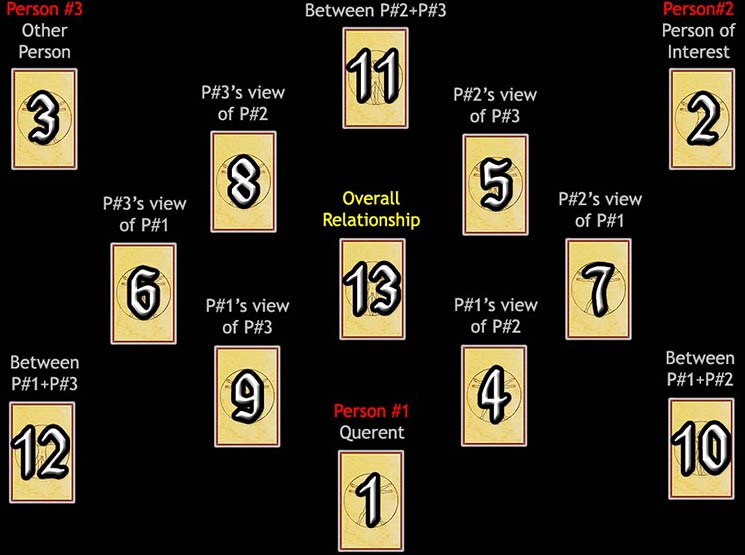
Difficulty: Complicated
Casually referred to as the Love Triangle, this spread can be used to determine the dynamics of the relationship between three people, regardless of whether romance is involved. This spread is arranged in the form of a hexagram, consisting of several large and small triangles. This tarot spread may seem somewhat complicated, but it is not entirely that difficult.
The first step is to interpret the card for each individual position in the spread. Generally, one might ask about a relationship they are involved in, but this does not have to be the case. Ordinarily, the reader's representative card is #1, their main person of interest is #2, and the other person would be #3.
The second step fills in the downward triangle and involves further examination of the individuals through their views of the other people. Each person has two more cards showing the way they see and relate to the other members of the triangle. For example, Card #6 indicates how Person #3 relates to Person #1, while Card #9 stands for Person #1's attitude toward Person #3.
The next step completes the upward triangle and the hexagram, focusing on cards #10–13. It also completes the many smaller triangles and hints at the potential for each relationship. The final card, #13 can be considered the significator of the reading, which suggests the overall potential for this three-way relationship.
Your Love Triangle Reading
| P#3 | 3to2 | 2+3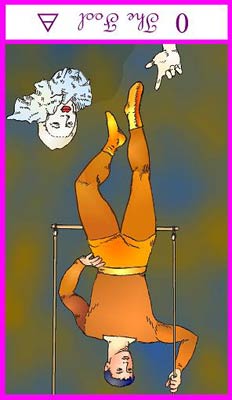 |
2to3 | P#2 | ||
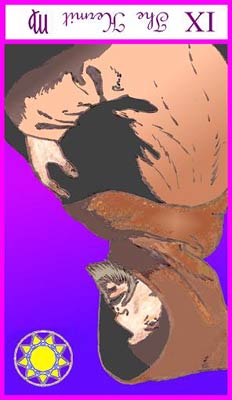 |
3to1 | 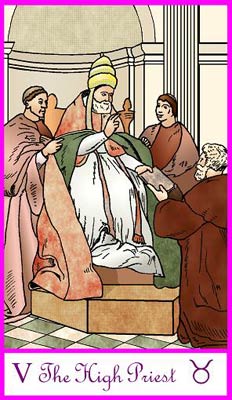 |
Overall | 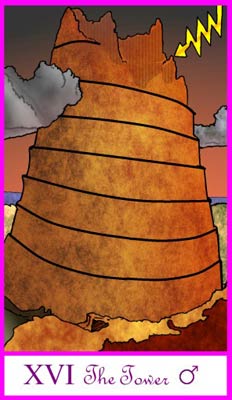 |
2to1 | 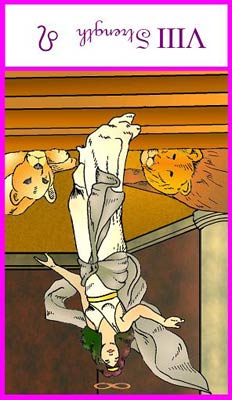 |
| 1+3 | 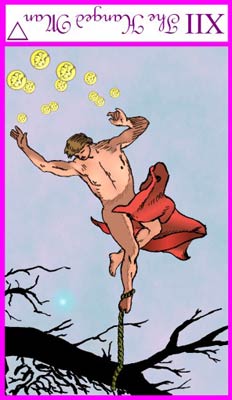 |
1to3 | 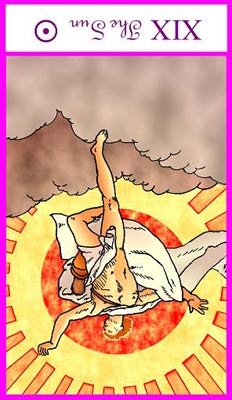 |
1to2 | 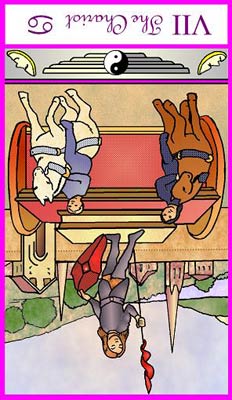 |
1+2 |
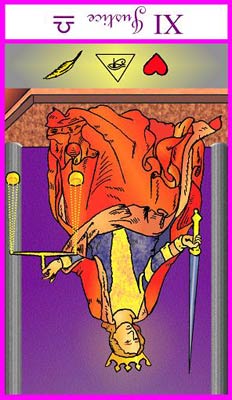 |
 |
P#1 | 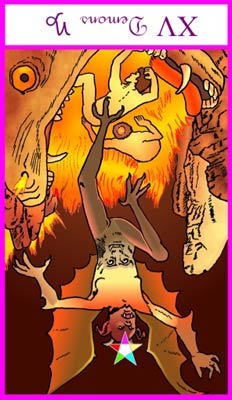 |
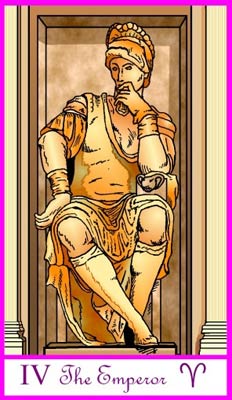 |
||
 |
1: Person #1

A time of deception, hidden agendas or unseen perils. There is some scheming going on behind the scenes. Suffering misunderstandings or confusion. Something eerie or haunting is going on. Hidden fears are coming to the surface. Feeling alone and abandoned, or that you have lost your way in life. Depression or nightmares.
2: Person #2

An unjust decision, perhaps based on bias, bigotry, or deceit. Delays in the delivery of a decision. Irresponsibility. An inability to make a decision. Being treated unfairly or with prejudice.
3: Person #3

Someone has been too withdrawn, antisocial, or introverted and would benefit from the company of others. Loneliness or aloofness. Isolation from people who might provide help or useful guidance. Feeling ostracised, left out.
4: Person #1's view of #2

'Facing your demons'. Overcoming an addiction. Pushing past obsessions and working to limit the number of toxic situations and friendships in your life. Getting help for your problems with addictions, anger management issues, etc. Resisting temptation. 'Better the devil you know than the devil you don't'.
5: Person #2's view of #3

The collapse of a project or situation, especially when it forces you to revaluate your core values. Someone who challenges your beliefs or forces you to revaluate your life. Being forced out of your comfort zone. Losing your temper, i.e., blowing your top.
6: Person #3's view of #1

Involuntary sacrifice. Martyrdom or playing the role of a victim. Experiencing reversals or setbacks. Unwillingness to make a sacrifice so that a larger gain might be made. A need to step back and get a fresh perspective.
7: Person #2's view of #1

Feeling pulled in several directions at once. Feeling a loss of control in your life. An inability to properly master outside influences. Charging ahead rashly. Running roughshod over other people. Losing yourself in the role you have to play in order to succeed. Failure or a very costly victory.
8: Person #3's view of #2

Conformity; sticking with conventional wisdom. A traditional rite, ritual, or ceremony. Religious teachings or education in general. Peer pressure. Listening to your conscience. Being devout; having faith in something.
9: Person #1's view of #3

Having or developing important skills. This is a time when you should be able to succeed in a venture or project because of your experience and skills. A situation where concentration is required.
10: Overall relationship between persons #1 and #2

The Father archetype, which implies things like strictness, providing for others, and having respect and recognition from others. The ability to rationally resolve issues and problems. Having structure, stability, and order in your life. An authority figure, a person who is in a position of power.
11: Overall relationship between persons #2 and #3

Naiveté or foolishness. Beware of acting irresponsibly. 'Look before you leap'.
12: Overall relationship between persons #1 and #3

Lack of self-discipline is creating problems. Being a bully or feeling bullied by others. Being overbearing or bossy. Lacking integrity and moral fortitude. Yielding to base instincts such as greed and jealousy. Seeing the worst in others.
13: Overall 3-way Relationship

Partial success or success after some delays. 'Hiding your light under a bushel'. A missed opportunity. A need for a more energetic approach. Someone who is arrogant, egocentric, or self-absorbed.
